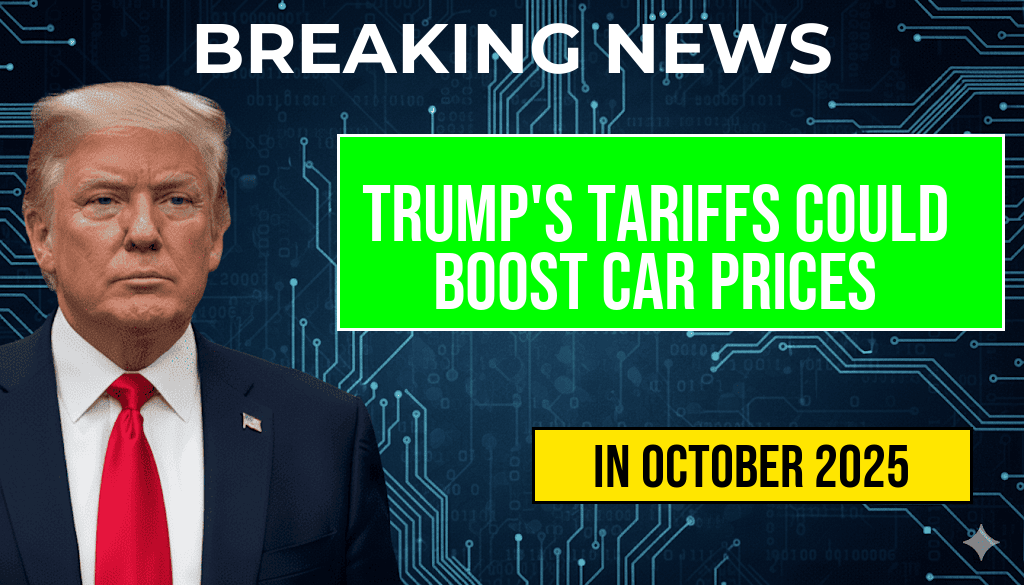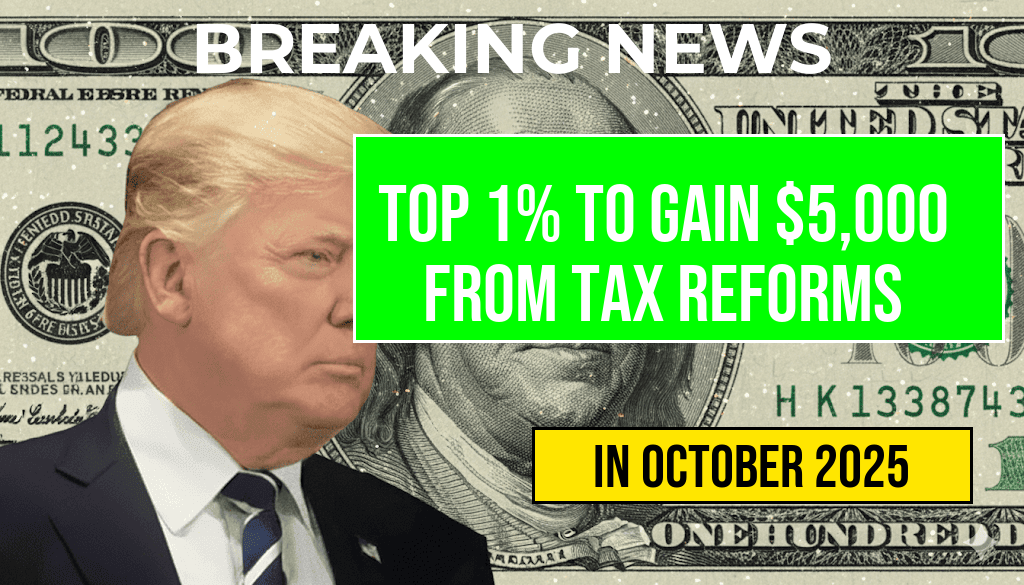Automakers and consumers alike are watching closely as recent statements from former President Donald Trump hint at potential tariff increases that could significantly impact the cost of new vehicles in the United States. If implemented, these tariffs could raise the average price of a new car by as much as $5,286, intensifying existing pressures on vehicle affordability. The announcement has reignited concerns about the broader effects of trade policy shifts, with industry analysts warning that such measures could ripple through supply chains, inflation rates, and consumer choices. Experts suggest that the proposed tariffs, aimed at addressing trade deficits or bolstering domestic manufacturing, might come at a steep financial cost to buyers, with some vehicle segments expecting even larger price hikes. As discussions unfold, stakeholders are weighing the potential economic and political implications of this move, which could reshape the landscape of American auto sales in the months ahead.
Potential Impact of Tariff Increases on Vehicle Prices
Context and Background
Trade policies have historically influenced vehicle prices, especially when tariffs target imported components or vehicles. The latest threat from Donald Trump centers on imposing higher tariffs on imported autos and auto parts, a move that could dramatically influence manufacturing costs. According to industry estimates, such tariffs could add thousands of dollars to the sticker price of a new vehicle, impacting both manufacturers and consumers.
Projected Price Increases
| Tariff Rate | Average Vehicle Price Increase | Potential Additional Cost |
|---|---|---|
| 10% | $2,100 | $5,286 (average) |
| 25% | $5,286 | $5,286 (average) |
These figures are based on current import values and could fluctuate depending on the specific tariffs enacted and the types of vehicles affected. For context, the average price of a new car in the U.S. hovers around $48,000, according to data from Statista.
Which Vehicles Are Most at Risk?
- Luxury brands—such as BMW, Mercedes-Benz, and Audi—rely heavily on imported components, making them prone to significant price swings.
- Large SUVs and trucks—often assembled with imported parts—could see larger increases due to their complex supply chains.
- Economy models—may experience smaller price hikes but could still see added costs passed onto consumers.
Industry and Consumer Reactions
Automaker Responses
Major car manufacturers have expressed concern over the potential tariffs, warning that increased costs could dampen sales and slow production. Honda, Toyota, and Volkswagen have highlighted their reliance on imported parts and have cautioned that rising tariffs could lead to higher prices, reduced profit margins, and potential layoffs. Some automakers are exploring options such as sourcing more components domestically or adjusting their supply chains to mitigate the impact.
Consumer Implications
For consumers, the prospect of higher vehicle prices could dampen demand, especially considering ongoing inflationary pressures. A rise of even a few thousand dollars per vehicle might push some buyers out of the market or prompt them to delay purchases. Additionally, rising vehicle costs could influence lease prices and financing terms, further affecting affordability.
Broader Economic and Political Considerations
Trade Policy and Domestic Manufacturing
Supporters of increased tariffs argue that they could bolster domestic auto manufacturing and reduce reliance on imports, potentially leading to more jobs and a stronger industrial base. However, critics warn that such measures often lead to retaliatory tariffs, escalating costs across multiple sectors and risking trade tensions.
Potential Market Outcomes
Analysts project that if tariffs are enacted at the levels discussed, vehicle prices could rise sharply, leading to a slowdown in sales growth. Some experts suggest that automakers might absorb part of the costs to remain competitive, which could impact their profitability. Consumers may also shift preferences toward used vehicles or alternative transportation options if new car prices become prohibitively expensive.
Additional Resources
- Auto industry in the United States – Wikipedia
- Forbes: Impact of Trump’s Tariff Threats on Car Prices
Frequently Asked Questions
What is the main concern regarding Trump’s tariff threat on new cars?
The primary concern is that Trump’s tariff threat could lead to an increase in vehicle prices by up to $5,286, making new cars more expensive for consumers.
How could tariffs impact the cost of importing vehicles?
Tariffs on imported vehicles or auto parts can raise manufacturing costs, which may be passed on to consumers, resulting in higher vehicle prices.
Which types of vehicles are most likely to be affected by these tariffs?
Both imported vehicles and auto parts used in domestic manufacturing are susceptible, potentially affecting a wide range of car models.
What should consumers expect if tariffs are imposed?
Consumers may face increased out-the-door prices for new vehicles, possibly leading to reduced sales and altered budget considerations.
Is there any way for consumers to mitigate the impact of these potential price increases?
Consumers can consider buying earlier before tariffs take effect, exploring used cars, or researching alternative brands to avoid the highest price hikes.






